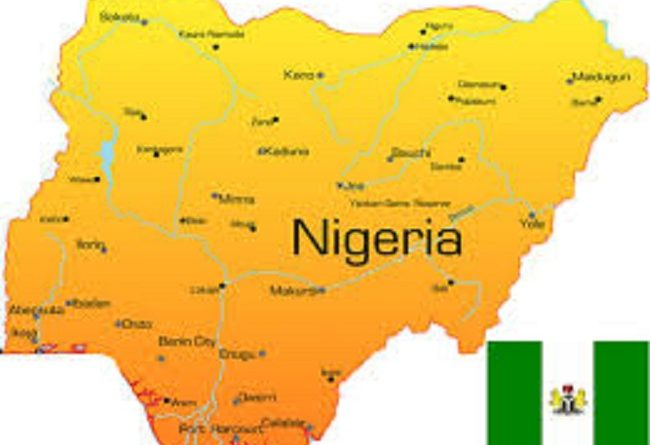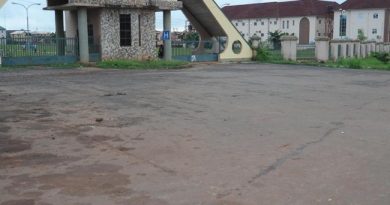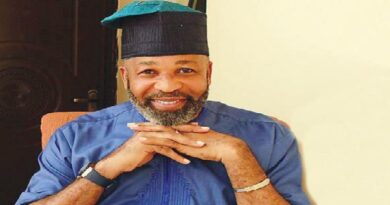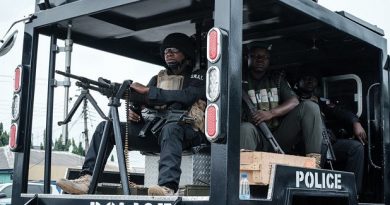Nigeria @60: 18 shocking historical facts about Nigeria And How Buhari Overthrew The Government of Alhaji Shehu Shagari
Today, the APC led federal government with President Mohahmmadu Buhari at the helms of affairs celebrates Nigeria’s 60 years anniversary at Eagles Square in Abuja, the country’s capital amidst tension.
Just like every October 1st in the checkered history of Nigeria, Nigerians is significant in the lives of Nigerians, as it represents freedom from the British Empire.
The day is spent reflecting on the progress of the nation with a live speech from the president and beautiful cultural dances and songs performed by the students from different states.
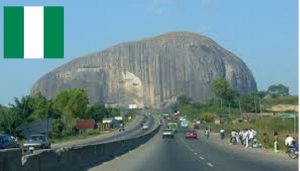
It will interest you to know some of these important historical facts about Nigeria’s independence journey.
770 A.D. – Early Ijaw settlement.
800 – Yoruba civilisation already well established, based on thirteen farming villages centred at Ilé-Ifẹ̀. Mega-state at Igbo-Ukwu has a complex social structure, produces copious artefacts including bronzes.
1450 – Beginning of European contact on the Atlantic coast.
1500 – The nominally Muslim Hausa Kingdoms were established in Northern Nigeria.
1845 – The first building in Nigeria was built in Badagry, Lagos State.
1851 – Kano one of the largest city in Africa made 10 million sandal pairs and 5 million hides for export every year.
1851 – Treaty Between Great Britain and Lagos.
1914 – Formation of Nigeria under Governor Frederick Lugard
1959 – The new Nigerian currency was introduced.
October 1, 1960 – Nigeria gained independence from Britain.
October 1, 1961 – Southern Cameroon ceases to be a part of Nigeria and became a part of Cameroun, following the UN-organised plebiscite of February 11, 1961.
October 1, 1963 – Nigeria became a republic.
1965 – Cocoa house in the city of Ibadan, Oyo state was once the tallest building in tropical Africa.
1975 – A brand new car sold for N2000
1975 – An air ticket to London was less than N100
1976 – 75 Kobos exchanged for one British Pound Sterling and 60 Kobos for one US dollar.
1983 – Major General Mohammadu Buhari through a coup became Nigeria Head of State.
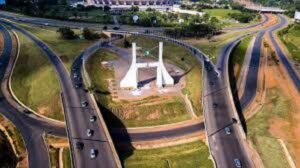
Till 1984, A Travel Visa was not required to travel to the United Kingdom, but when General Mohammadu Buhari now President Buhari and his boys came and overthrew the civilian government led by Alhaji Shehu Shagari, Nigeria began a seeming journey of retrogression.
The Nigerian military coup of 1983 took place on December 31st of that year. It was coordinated by key officers of the Nigerian military and led to the ousting of the democratically elected government of President Shehu Shagari and the installation of Major General Muhammadu Buhari as Head of State.
Tensions between the civilian and military aspects of the Nigerian government were escalating. One major incident was when General Muhammadu Buhari, the Commanding officer of the 3rd Division, cut off fuel and food supplies into neighbouring Chad, an action caused by border disputes between Nigeria and Chad that was opposed by President Shehu Shagari.
General Mohammadu Buhari disregarded orders by Shagari to avoid entering Chadian territory, and his unit pursued Chadian intruders around 50 kilometres into Chad. This incident was one of the major contributing factors to the coup, as it placed the civilian government and military on opposite sides of a highly divisive issue.[1]
Shortly before the coup, the Director-General of the National Security Organization, Umaru Shinkafi, detected communications that implicated several coup plots. However, the NSO was unable to intervene in these plots because of the tenuous and vague nature of the intelligence gathered
Colonel Tunde Ogbeha was tasked by the coup plotters to negotiate the peaceful surrender of President Shagari’s Brigade of Guards army unit. Ogbeha was unable to reach Colonel Bello Kaliel, the Commander of the Brigade of Guards and engaged in a Lagos-to-Abuja-and-back seeking game which made Kaliel suspicious. Brigadier Ibrahim Bako was given the responsibility of arresting President Shagari after Ogbeha’s successful negotiation of a peaceful surrender. Unknown to Bako was the fact that no such surrender had been negotiated.
Additionally, details of the plot had not only been leaked to President Shagari but also to Captain Anyogo, and Lt Colonel Eboma of the Brigade of Guards mounted a defence of the presidential villa in anticipation of an attack. As expected, Brigadier Bako arrived at the Presidential villa to arrest President Shagari but President Shagari’s guards were not pacified as expected. A firefight ensued leading to the killing of Brigadier Bako.
Names of those that helped Major General Mohammadu Buhari in the Coup that overthrew Shehu Shagari.
- Major General Muhammadu Buhari (General Officer Commanding, 3rd Armored Division, Jos)
- Moshood Kashimawo Abiola (Business tycoon who financed the coup plot according to General Babangida)
- Major General Ibrahim Babangida (Director of Army Staff Duties and Plans)
- Brigadier Ibrahim Bako (Brigade Commander)
- Brigadier Sani Abacha (Commander, 9th Mechanized Brigade)
- Brigadier Tunde Idiagbon (Military Secretary, Army)
- Lt Colonel Aliyu Mohammed (Director of Military Intelligence)
- Lt Colonel Halilu Akilu
- Lt Colonel David Mark
- Lt Colonel Tunde Ogbeha
- Major Sambo Dasuki (Military Assistant to the Chief of Army Staff, Lt-General Wushishi)
- Major Abdulmumuni Aminu
- Major Lawan Gwadabe
- Major Mustapha Jokolo (Senior Instructor, Basawa Barracks – Zaria)
- Major Abubakar Umar
Meanwhile, General Buhari has denied his involvement in the December 1983 coup.
However, the example of the late Major Daniel Bamidele betrays Buhari’s complicity in the December 1983 coup. Nigerian military historians Max Siollun and Nowa Omoigui note that when Major Bamidele got wind of the coup to oust Shagari, Bamidele reported the issue up the chain of command to his GOC 3rd Armored Division (Major General Buhari) who was allegedly in on the plot.
To prevent Bamidele from leaking the plot, Buhari ordered the arrest and detention of Bamidele for two weeks. Bamidele wasn’t released until the successful execution of the coup. Learning from this unfortunate experience, Bamidele didn’t report any rumours of the so-called Vatsa coup (between 1985 and 1986) and was executed for it.[4][5] Bamidele’s words to the Special Military Tribunal that tried and convicted him are:
“I heard of the 1983 coup planning, told my GOC General Buhari who detained me for two weeks in Lagos. Instead of a pat on the back, I received a stab. How then do you expect me to report this one? This trial marks the eclipse of my brilliant and unblemished career of 19 years. I fought in the civil war with the ability it pleased God to give me. It is unfortunate that I’m being convicted for something which I have had to stop on two occasions. This is not self adulation but a sincere summary of the qualities inherent in me. It is an irony of fate that the president of the tribunal who in 1964 felt that I was good enough to take training in the UK is now saddled with the duty of showing me the exit from the force and the world.”[4]
Additionally, in a 2015 interview, Sambo Dasuki alleges that he and two other military officers (co-conspirators) travelled to Jos to brief Major General Buhari, who was then the GOC of 3rd Armoured Division, on the status of planning for the 1983 coup.[6]
Major General Buhari’s Supreme Military Council (SMC) observed a minute of silence for the slain Brigadier Bako during the SMCs first meeting.[7]
As Nigeria turns 60 years, many questions are begging for answers, notable, are “Who will save the day? Can President Buhari and his boys return Nigeria to the part of Progress”?

